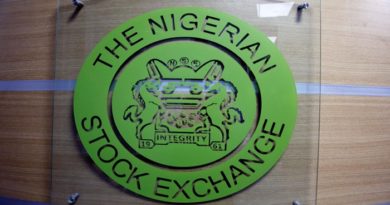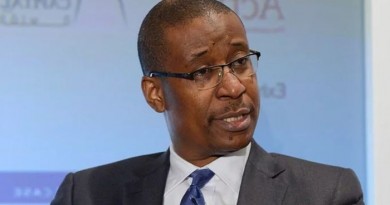Southern Kaduna Crisis: “We won’t sweep underlying issues of justice, marginalization under the carpet” -Osinbajo
Vice President Yemi Osinbajo (SAN) has said that to effectively deal with the Southern Kaduna crisis, the Buhari administration will not sweep the major issues underlying the conflict under the carpet.
According to him, this includes “ensuring justice, fixing economic marginalization and the prosecution of persons responsible for these murders -this is to ensure that the impunity doesn’t worsen.”
Prof. Osinbajo spoke at the ongoing Nigeria Bar Association Annual General Conference during a Special Conversation featuring him and the Speaker of the House of Representatives Mr. Femi Gbajabiamila.
The Vice President also urged those who have concerns about the recently signed CAMA legislation to approach the National Assembly for possible amendments, since “we are in a democracy.”
Speaking on the way forward in the Southern Kaduna conflict and making reference to his personal experience, the Vice President said, “I have been involved since 2001 through the work of the Macedonian initiative, an NGO that focused on providing relief materials to displaced persons in Southern Kaduna and several other places especially in North Central part of Nigeria. There have been judicial commissions and all sorts, but the problem remains. So, there is the need to address the underlying issues. You can’t sweep under the carpet, justice and the cries of economic marginalization.
“The fact is that we must prosecute persons responsible for these murders or otherwise impunity will worsen. And also support those who have lost their bread winners.”
Continuing, the Vice President said “the mindless callous killings in Southern Kaduna are heartbreaking. And again we must condole those who have lost loved ones and those injured or who have suffered loss of property. These tragedies are unacceptable and they are avoidable.”
Highlighting what the Federal Government has done and is currently doing to deal with the situation, Prof. Osinbajo said, “First is the improvement of security in Southern Kaduna. Now, we have a military base there, for the first time. We also have a lot of Air Force surveillance.
“We have about 500 conventional and Mobile Policemen in Zangon-Kataff and Kaura Local Government Areas and then the combined military team of the Army and the Navy who are also on ground 24 hours. This is basically to just take care of the volatile situation there.”
Continuing, the Vice President said “the President has also had several Security Council meetings and I have attended all of those, where the issues were discussed and the possibilities of engagement have also been discussed.”
On a personal note, the Vice President added “I have also engaged with community leaders in Southern Kaduna and also I have engaged with the governor to look at what peacemaking efforts are possible.”
The Vice President expressed optimism that the issues would be resolved noting that “some of the peacemaking efforts have been fairly successful” as recent peace efforts between the Zangon-Kataff and the Fulani communities would yield positive results.
He said “but there is also a lot of work going on to ensure that some of these fundamental issues are being addressed and it’s an evolving situation, but it’s something we can’t afford to ignore and it’s gone on for far too long and it’s redressable and possible for us to resolve.”
Responding to the issue of the Companies and Allied Matters Act (CAMA) 2020, the Vice President said the solution to the concerns is evident, noting that an amendment to the CAMA Act could be sought by those expressing concerns about sections of the law.
He said “we have a process by which this can be redressed. Whatever the proposal for amendment may be, whatever the view of the leadership of the church may be, regarding the question of how the trustees, whether they are interim trustees or not, can be put into a proposal that will be brought to the National Assembly for consideration for amendment to the law, that is the process which is entirely opened and ought to be pursued.
“We are in a democracy and there is a process by which things can be done and that process is the one where you bring forward amendments to the National Assembly and they will do whatever is considered useful in the circumstance.”
Speaking on the Federal Government’s reaction to the contraction of the economy as a result of the COVID-19 pandemic and related issues, Prof. Osinbajo said the Buhari administration’s response is robust and focused on local production using home-grown resources.
Citing the example of specific efforts of wealth and job creation using local resources, the Vice President said under the agriculture component of the National Economic Sustainability Plan (NESP-AGRO), 5 million farmers whose produce would be off-taken by government have been registered.
He added that progress is also been made under the housing component of the plan known as NESP-HOUSING with 11 State governments already given land and more states expected to join with the target of building about 100, 000 housing units, including 2-bedroom apartments at between N1.8 – N2 million cost, and in the process, engaging young architects, builders, among others.
Commenting on the other aspects of the stimulus package, the Vice President said, the Federal Government has, as part of the NESP, a survival fund and payroll support for artisans, private school teachers and small businesses.
The Speaker of the House of Representatives, Hon. Femi Gbajabiamila, spoke about the collaboration between the Executive and the Legislature under the Buhari administration in addressing some of the critical issues facing the country.
He said the actions of the House of Representatives would continue to be guided by the legislative agenda adopted by the House at its inauguration in 2019 which is in line with the vision of President Muhammadu Buhari.




